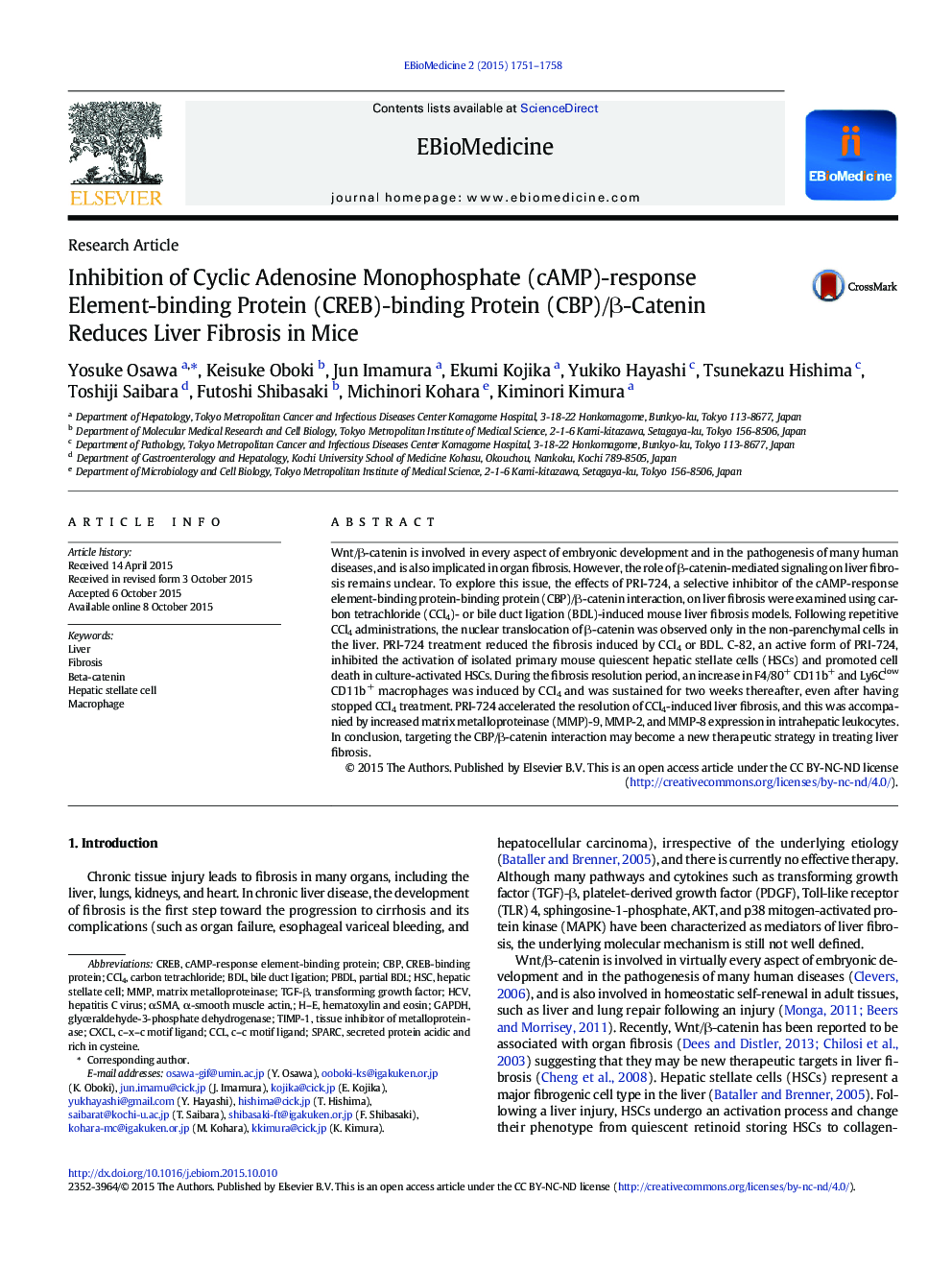| کد مقاله | کد نشریه | سال انتشار | مقاله انگلیسی | نسخه تمام متن |
|---|---|---|---|---|
| 2121008 | 1085766 | 2015 | 8 صفحه PDF | دانلود رایگان |

• PRI-724, a selective inhibitor of CBP/β-catenin, suppresses liver fibrogenesis.
• PRI-724 promotes fibrosis resolution in the liver.
• PRI-724 decreases collagen production from myofibroblasts.
• PRI-724 increases the production of MMPs from macrophages.Although liver fibrosis is becoming increasingly recognized as a major cause of morbidity and mortality in most chronic liver diseases, there are few—if any—treatment strategies available that specifically target the pathogenesis of fibrosis. In this study, we examined whether PRI-724, a selective inhibitor of the cAMP-response element-binding protein-binding protein (CBP)/β-catenin interaction, has therapeutic potential for liver fibrosis using mouse models. The results suggest a possibility that PRI-724 can be a candidate for new anti-fibrotic drugs for liver cirrhosis.
Wnt/β-catenin is involved in every aspect of embryonic development and in the pathogenesis of many human diseases, and is also implicated in organ fibrosis. However, the role of β-catenin-mediated signaling on liver fibrosis remains unclear. To explore this issue, the effects of PRI-724, a selective inhibitor of the cAMP-response element-binding protein-binding protein (CBP)/β-catenin interaction, on liver fibrosis were examined using carbon tetrachloride (CCl4)- or bile duct ligation (BDL)-induced mouse liver fibrosis models. Following repetitive CCl4 administrations, the nuclear translocation of β-catenin was observed only in the non-parenchymal cells in the liver. PRI-724 treatment reduced the fibrosis induced by CCl4 or BDL. C-82, an active form of PRI-724, inhibited the activation of isolated primary mouse quiescent hepatic stellate cells (HSCs) and promoted cell death in culture-activated HSCs. During the fibrosis resolution period, an increase in F4/80+ CD11b+ and Ly6Clow CD11b+ macrophages was induced by CCl4 and was sustained for two weeks thereafter, even after having stopped CCl4 treatment. PRI-724 accelerated the resolution of CCl4-induced liver fibrosis, and this was accompanied by increased matrix metalloproteinase (MMP)-9, MMP-2, and MMP-8 expression in intrahepatic leukocytes. In conclusion, targeting the CBP/β-catenin interaction may become a new therapeutic strategy in treating liver fibrosis.
Journal: EBioMedicine - Volume 2, Issue 11, November 2015, Pages 1751–1758